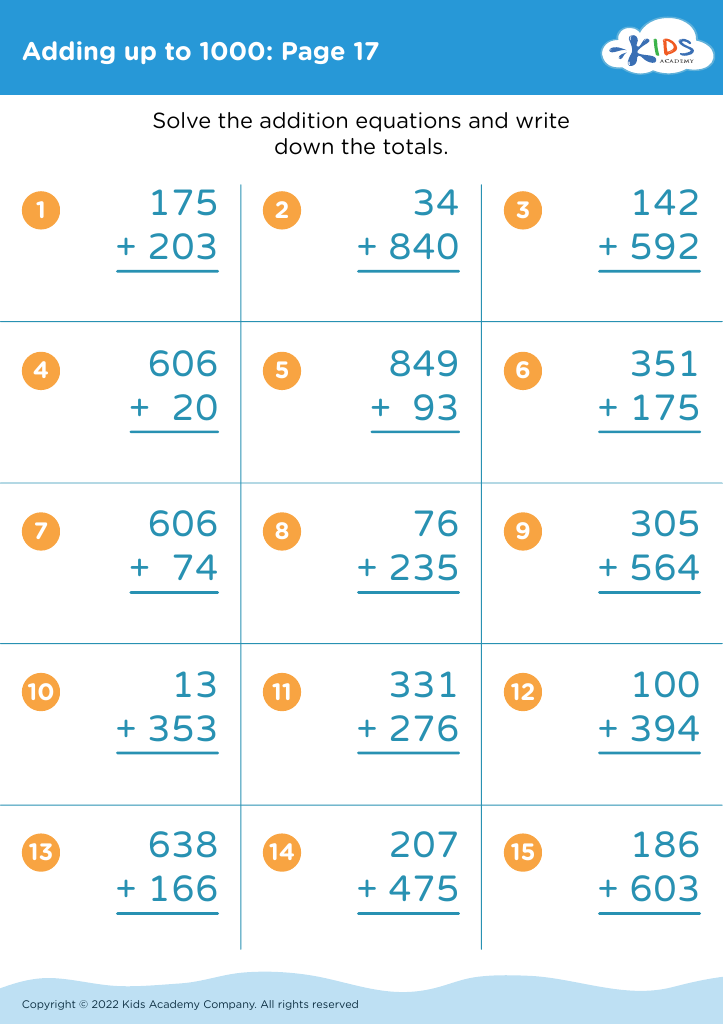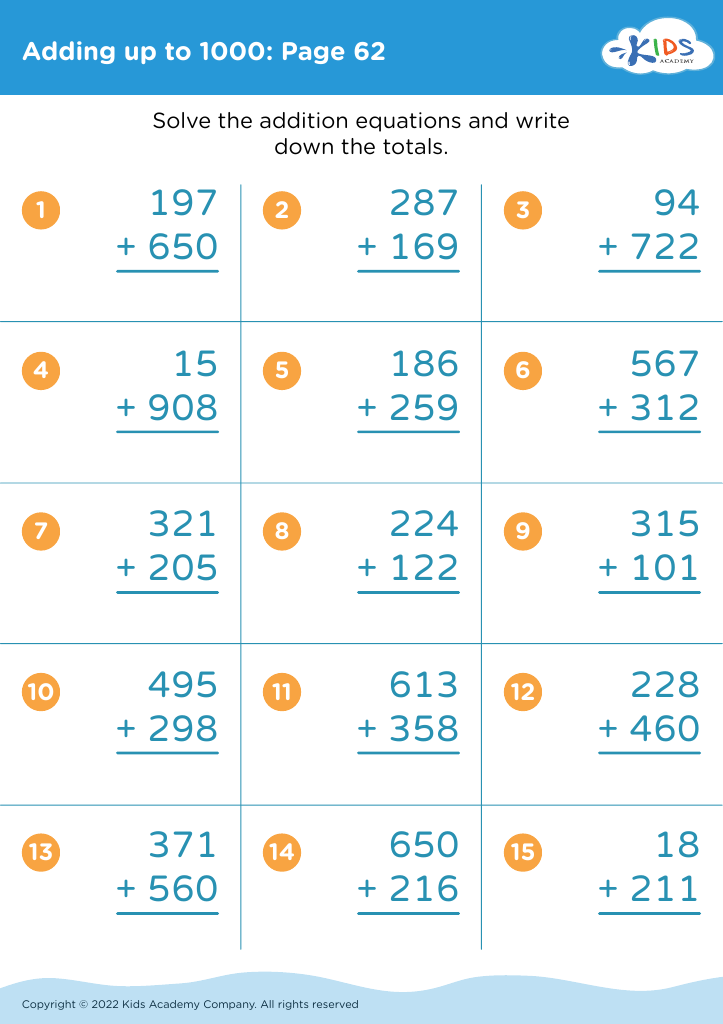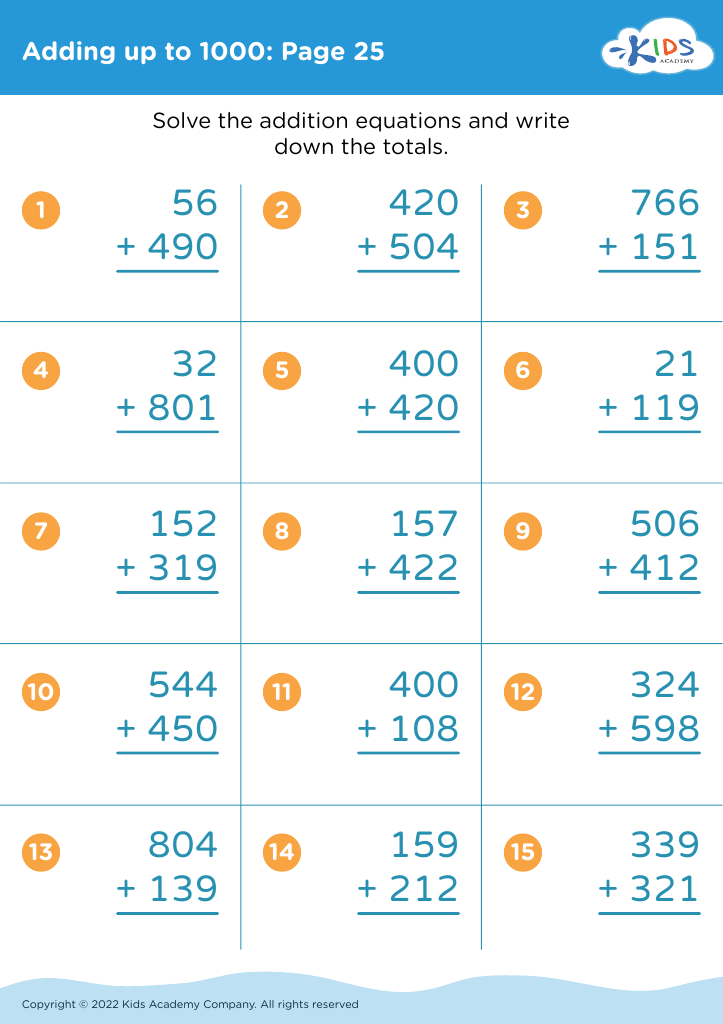Fraction comparison Adding up to 1000 Misc Worksheets for Ages 4-7
6 filtered results
-
From - To
Explore our engaging "Fraction Comparison Adding up to 1000 Misc Worksheets" designed for children ages 4-7. These expertly crafted activities help young learners understand fractions through fun and interactive exercises. Each worksheet focuses on building strong foundational math skills, using colorful visuals and relatable examples to make learning enjoyable. Your child will improve their ability to compare fractions while practicing addition up to 1000. Our worksheets cover a variety of tasks to keep kids challenged and motivated. Perfect for both classroom and at-home use, let our worksheets guide your child toward math mastery.
Fraction comparison and addition skills are foundational elements in a child's mathematical development, even for children as young as ages 4-7. Introducing these concepts early builds a strong base for more complex mathematical operations in later years.
Parents and teachers should care because understanding fractions improves a child's number sense and helps them see relationships between different values. Fraction comparison teaches children how to evaluate the size differences between parts of a whole, a skill crucial for everyday tasks like cooking or sharing. Simplifying fractions by adding them up to a manageable number like 1000 reinforces arithmetic skills and helps children grasp the idea of managing large numbers in smaller, digestible parts.
Through activities such as comparing fractions or summing up to 1000, children also improve their problem-solving abilities, attention to detail, and logical thinking. For instance, a practical exercise could involve dividing a pizza into parts and determining which is larger or summing parts together to form a whole. Such activities make abstract concepts tangible and fun, making learning enjoyable and effective.
Overall, early exposure to these fundamental math skills boosts confidence, promotes critical thinking, and lays the groundwork for future academic success, ensuring children are not only prepared for more complex math but are also setting up important life skills.
















